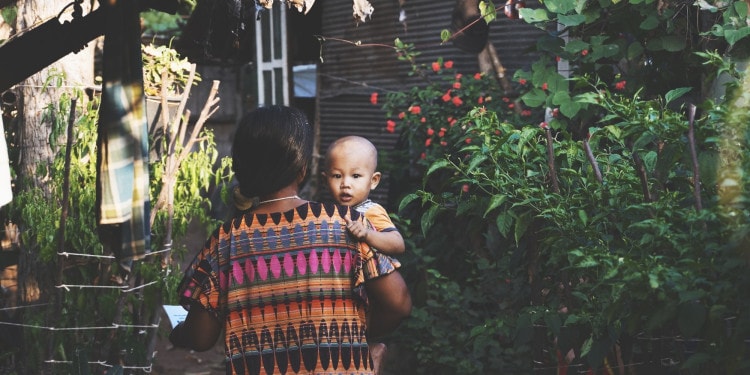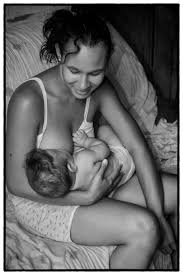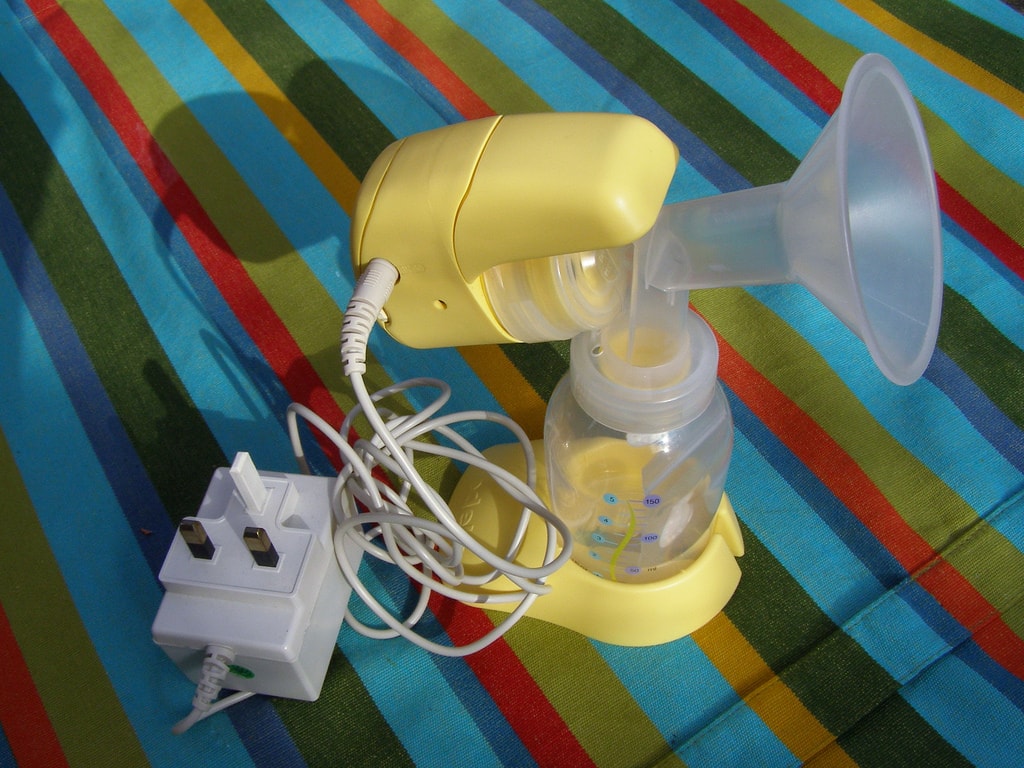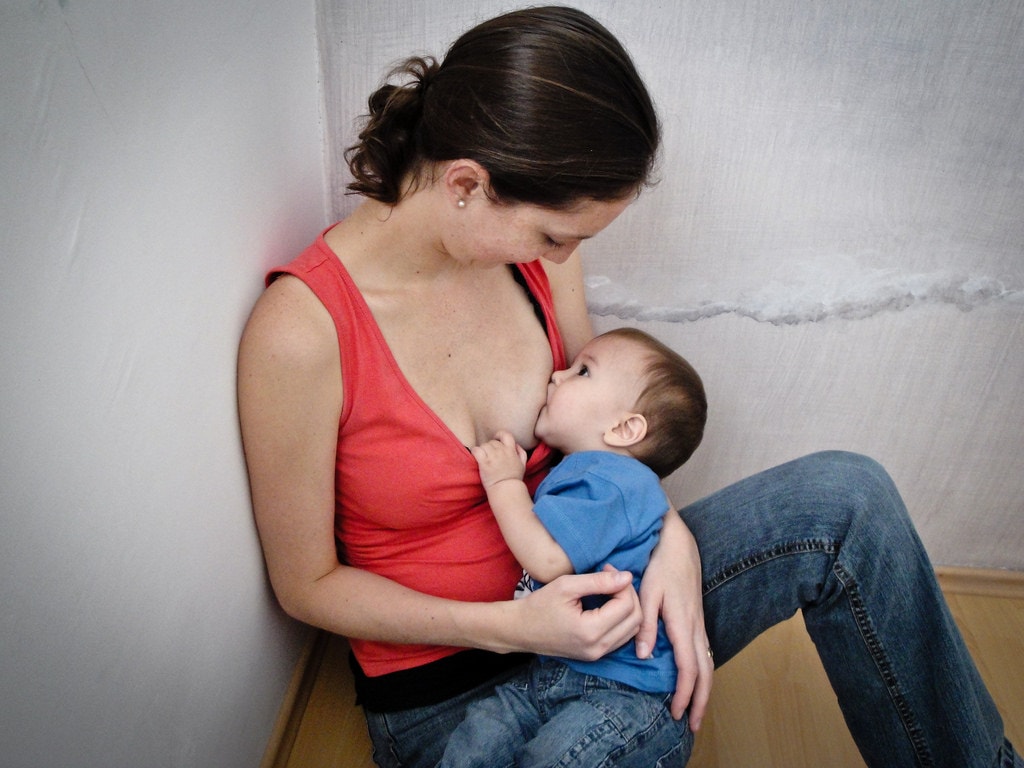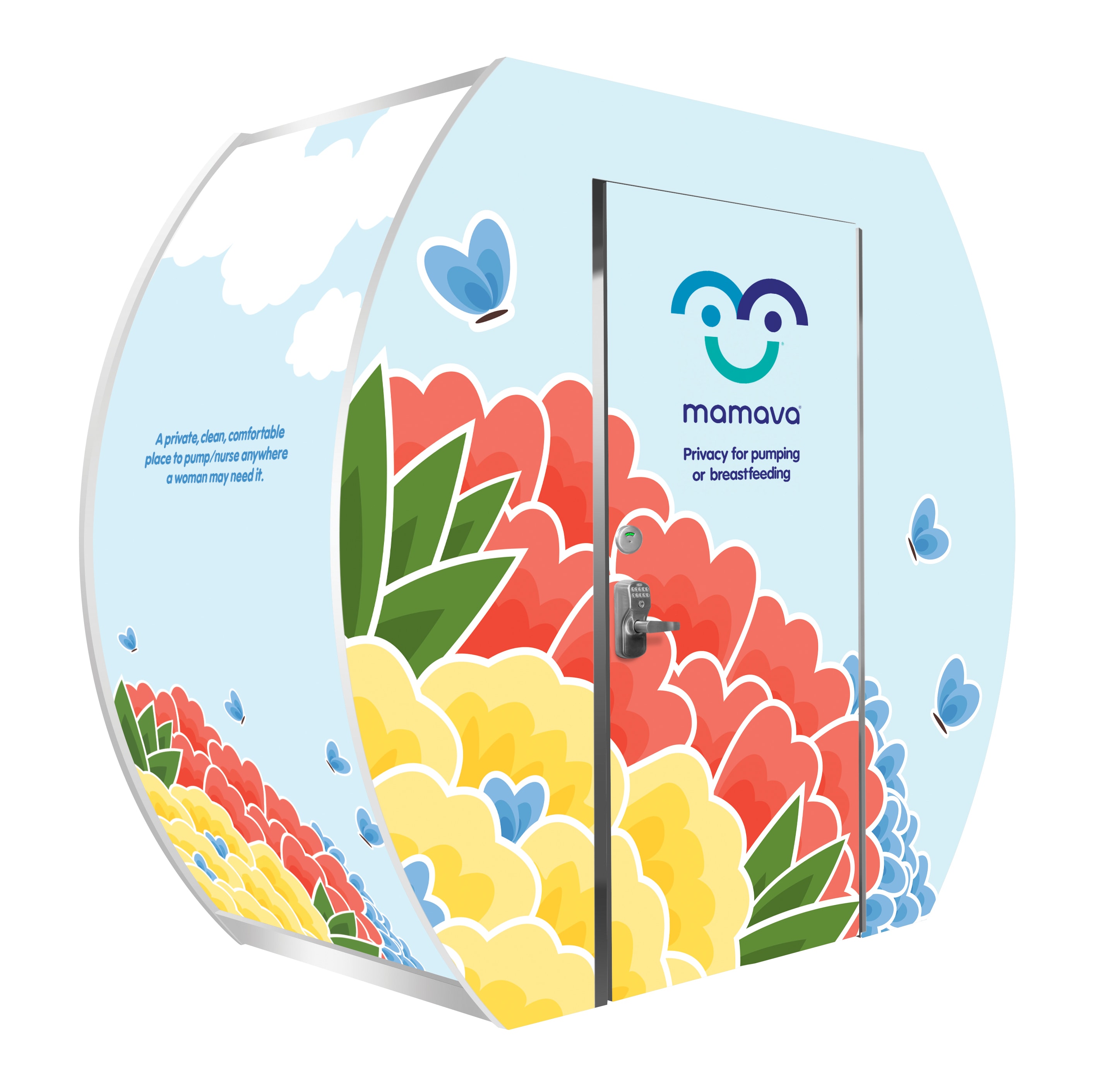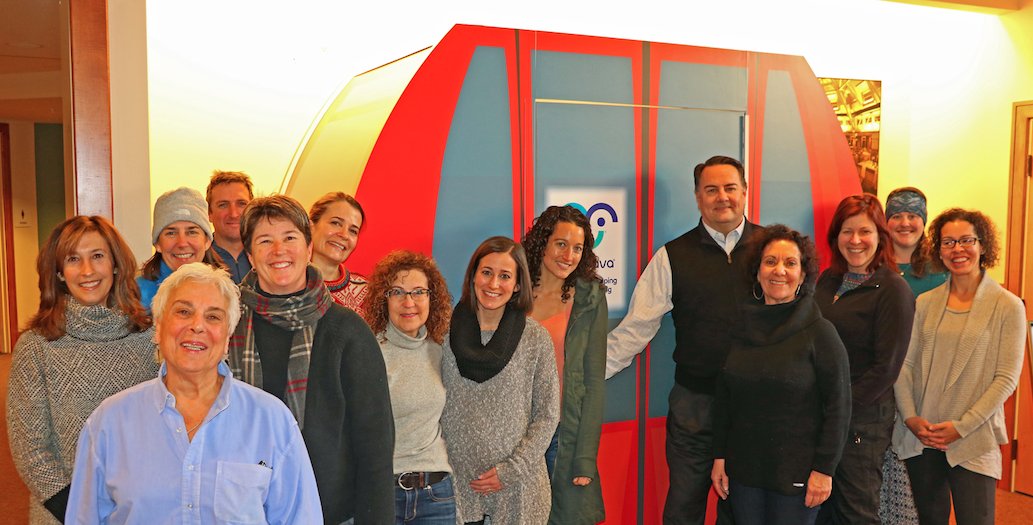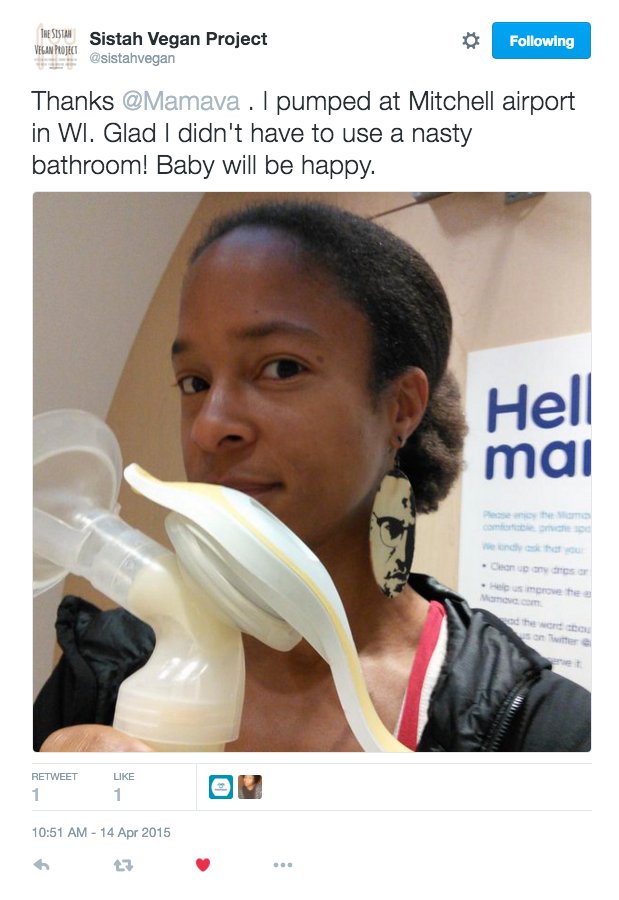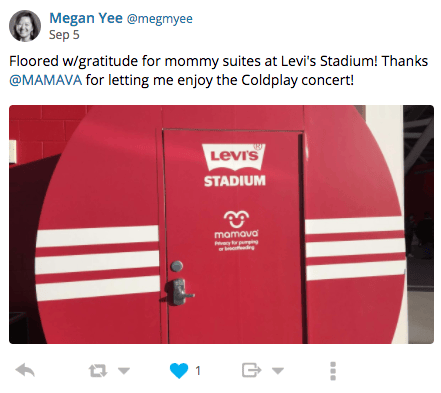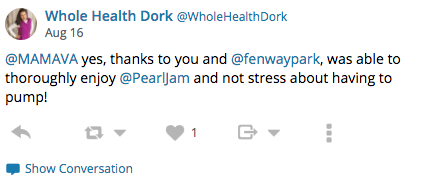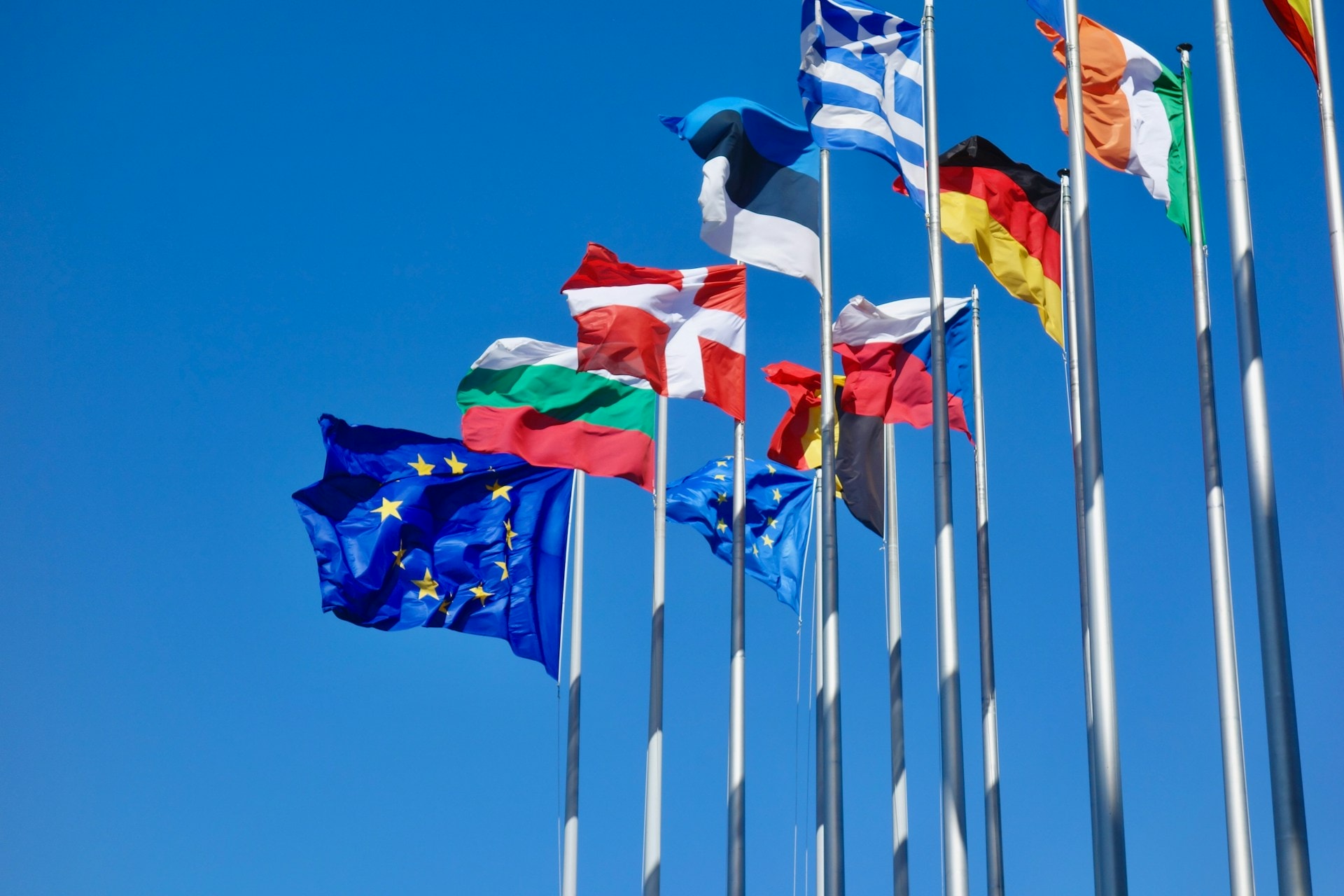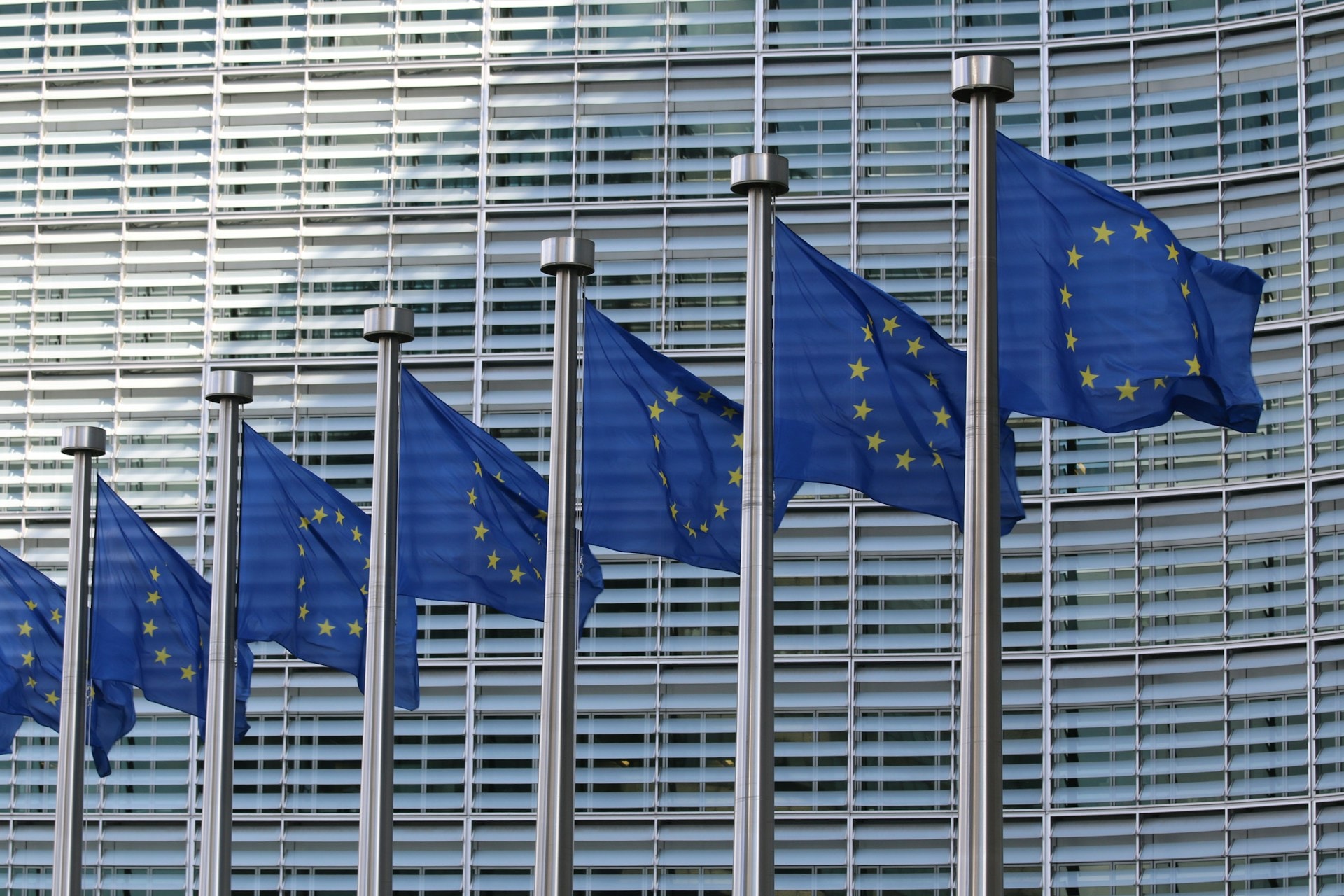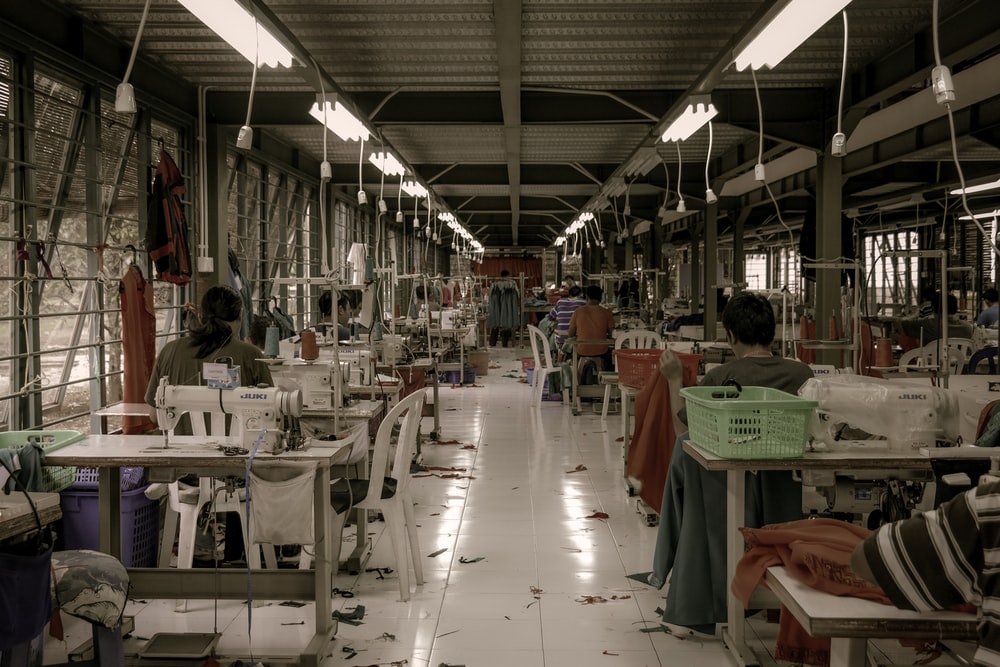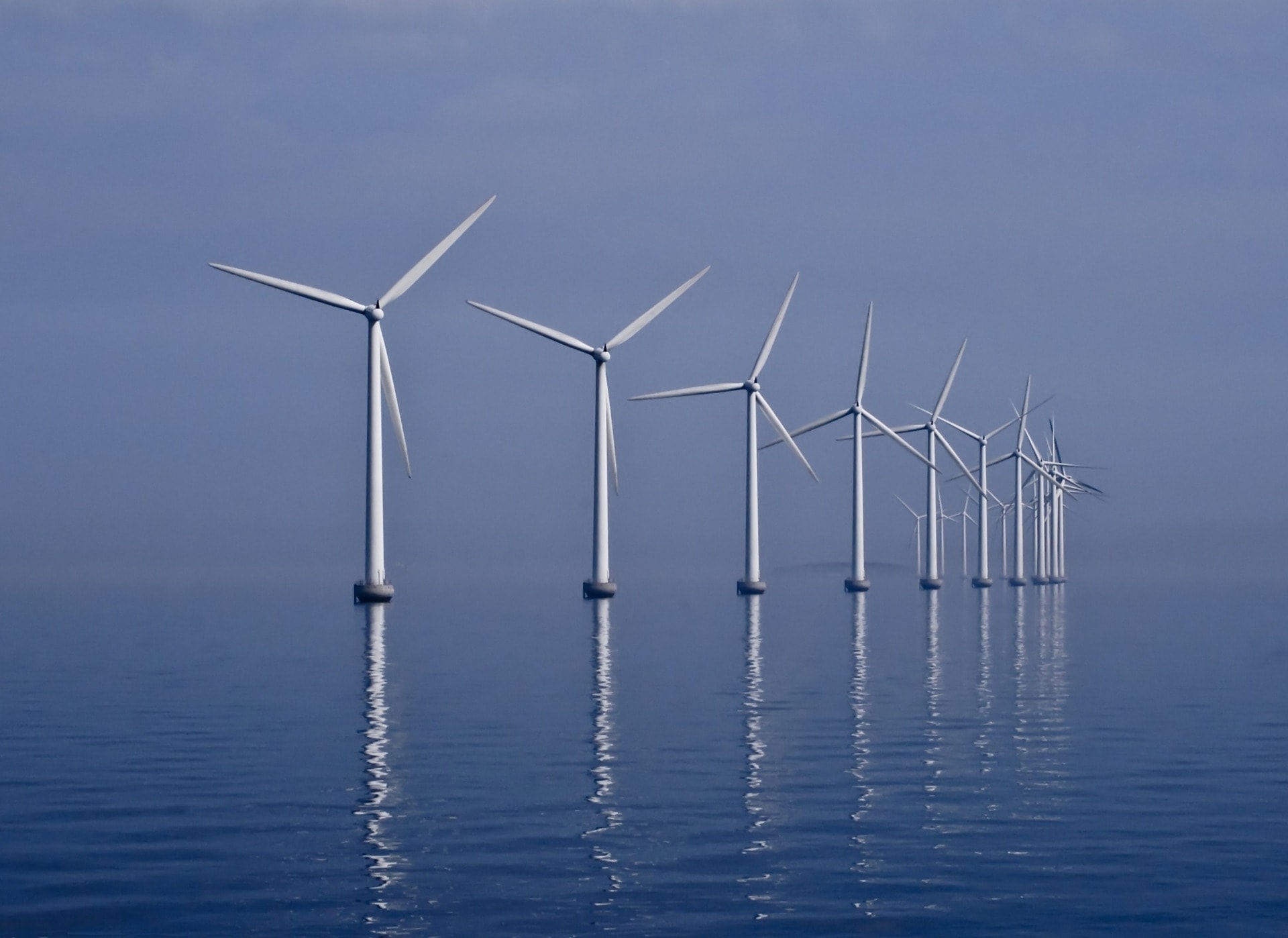Feeding Two Birds With One Seed
Breastfeeding is one of those behaviors that feeds two birds with one seed. Breastmilk acts as a “personalized medicine” for babies and can also give them an edge in the classroom. In addition, breastfeeding protects women against breast cancer and possibly diabetes and ovarian cancer.
Most women in the U.S. start out breastfeeding, but only 22% exclusively breastfeed 6 months later . Why the steep drop off? Women encounter many challenges when initiating and continuing breastfeeding. Finding the time and space to express milk is one.
In the photo: Mother breastfeeding baby Photo credit: Wikimedia
Finding Time and Space to Pump
In order to breastfeed, a woman has to have a continuous supply of breast milk. She can keep her supply up by expressing milk every few hours by breastfeeding or by using a mechanical or breast pump covered by insurance.. Pumping takes about 15-20 minutes (not including finding a place to pump when traveling and cleaning the pump attachments). When women can’t pump, they can experience discomfort, infection, their supply can wane, and milk production can stop all together. When Is It Safe to Stop Getting Regular Mammograms?
Shelley Kaushal, a new mom and a marketing manager at a large healthcare firm remembers, “Going back to work was stressful because you have to make sure you keep up your supply. If you can’t pump because you can’t get out of a meeting, or you can’t pump because you forgot a pump attachment at home, you’re affecting your supply. The less you pump, the less you produce. The logistics around planning to pump are very stressful”
Kaushal explains, “I’m know I’m fortunate because I work in a big company that has lactation rooms. I can’t imagine if I worked in a restaurant or in the service industry. I’m much more autonomous. I can come and go as I want. I don’t have to punch in or out.”
To be sure, the choice to breastfeed is almost nonexistent for women who work lower-paid, fast-paced jobs. When lower-paid women do have time to pump, they often pump in bathrooms. Women who travel, teach or sit in classes at universities, or visit loved ones at the hospital also often use bathrooms to pump. But for obvious reasons, bathrooms are the last place anyone wants to, or should have to, prepare food.
In the photo: Electric breast pump Photo credit: Flicker / Jim Champion
Facing these and other challenges, many women default to using formula to feed their babies. Dr. Lauren Dinour, a leading researcher in the field of employer-based support for women who breastfeed and Assistant Professor of Nutrition and Food Studies at Montclair State University in New Jersey, explains: “When women default to formula as opposed to breastmilk because of a lack of structural and social supports, there’s the potential for increases in infant illness and acute and chronic outcomes. Without the supports at work and without lactation spaces in public, that choice kind of gets taken away because it becomes much easier not to breastfeed.”
The good news is that employers in the U.S. with 50 or more non-exempt employees are mandated to provide the space and time for moms to express milk until their baby turns 1. Mamava launched a line of modular suites to help businesses do just that.
In the photo: Mother and child Photo credit: Flicker / Benjamin Magaña
A Solution for Moms on the Go
The idea of modular suites for nursing moms took shape for co-founders Christine Dodson & Sascha Mayer years before the mandate passed in 2010. They were inspired by a New York Times article highlighting the breastfeeding disparity between lower-paid and higher paid moms, and their own experience as working and nursing moms. The mandate gave their business a perfect jumping off point and the business launched in 2013.
In the photo: Mamava Suite Photo credit: Mamava
Kaushal saw a Mamava pod for the first time last month. Her redeye landed at the Orlando airport and she headed down the terminal to pick up her rental car. She had 90-minutes before her first client meeting and planned to pump in the car. On her way she noticed a 4-by-8 foot pod. Her first thought was, “Is this for real?” Her second thought was, “Is there a fee? Because I’d pay for this.” But it was free.
She remembers peaking inside. “I saw this big, super clean space with a mirror. It had two benches, a table, artwork on the wall, and outlets. I thought, ‘Wow, I can sit here, relax and have a clean space to prep and store milk without the anxiety of being in my car or a bathroom. I didn’t feel pressure to get out, or stressed that someone’s looking at me, or like I needed to get out of the way. It just felt really nice and it made me realize that, hey, other people are thinking about this and recognizing that it’s really hard for mothers who are breastfeeding.
In the photo: Mamava Staff Photo credit: Mamava
Brittany Nunnink, Mamava’s Marketing Manager is certainly thinking about it. She explains, “We’ve designed a dignified space for breastfeeding moms to pump and – if they prefer – breastfeed privately. Our suites are designed by moms, for moms with their biological and emotional needs in mind. At long last there’s a clean, private and comfortable place for moms to go, relax, and let-down – be that breast to pump or breast to babe. It’s about celebrating all experiences, every mom’s journey and every mom’s choice.”
In the photo: Mamava Mama Photo credit: Sistah Vegan Project
Where Can You Find Mamava Pods?
The pods are dotted across the U.S. in airports, stadiums, schools, hospitals and convention centers. And more and more building managers are purchasing the suites. Nunnink explains, “In addition to doing what’s right for women and babies, managers want to ensure compliance with the Fair Labor Standards Act. It’s usually simpler and cheaper than carving out a room or continuously retrofitting rooms for breastfeeding moms.”
In the photo: Mamava Suite Photo credit: Megan Yee
The pods are hard to miss, and that’s a good thing. Nunnink says that, “They can help raise the profile of breastfeeding, and can also reinforce the notion that breastfeeding mothers need to be supported.” Mamava also has inflatable, open-top units for one-time events like marathons or conferences and rents out its hard body units.
For traveling moms, Mamava has a suite locator app for iPhone. Their Android App is coming soon. In addition to showcasing public Mamava suites, the app lists user-submitted nursing friendly locations. Coming soon, a new version of the mobile app will be released with a Smart Lock that syncs with the Mamava suites to unlock the suites and provide on-demand access.
In the photo: Mamava Mama Photo credit: Whole Health Dork
So will Mamava pods increase rates of breastfeeding? They can certainly help. Dr. Dinour explains, “The more lactation spaces we provide at the workplace, in public places, pretty much anywhere a woman needs to go with or without her child, the more likely it is that women will initiate breastfeeding and pumping.” They help moms like Shelley Kaushal, and Mamava hopes they’ll help you, or someone you love, too.
Recommended Reading: “THE CONVENING POWER OF WORMS“


